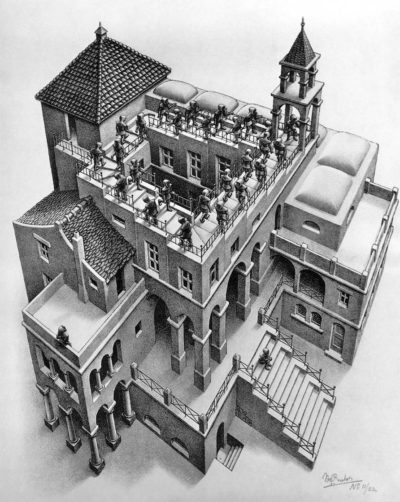
Sigmund Freud : Tear Off The Masks
Introduction to the Epigenesis of Totemism
The discoveries of the new sciences hammer away at humanity’s most cherished, delusions. Galileo set the earth spinning in an intergalactic void; Darwin posited a theory of origins which required oceans of blind, godless time. And still more recently, Freud broke multiple taboos and spoke candidly of bodily orifices, defense mechanisms, primal motivations, and the delusions to which fearful superstition gives rise. These pioneers and their successors dramatically pushed the cognitive envelope outward, and challenged the magical formulae that had sustained humanity on its journey out of Africa.
Freudian theory and psychoanalysis were a products of scientifically confident times. In that positivist atmosphere, no mystery of the universe was thought to be beyond understanding. And while this hubris produced a number of false starts, its spirit of bold inquiry opened the the way for later discoveries that were truly profound.
Freud described the psyche’s fears, hungers, and fantasies. He discovered its escape mechanisms; its ability to innocently rationalize purely selfish ends; its enormous power to concoct a universe from the fevered heart of disease.
Freud’s realistic perspective offered no resurrection into a beyond; only a more fully experienced and autonomous present. If a patient was courageous, he or she could begin to reclaim some of the ego territory lost to the culture-bloated superego. The most intrepid patients could imitate the great pattern of the heroes: the journey to the the unseen, to the underworld. Here, each would confront the demons and Grendels of primal trauma–mysterious past experiences that still asserted their power to kneecap the present.
One idea increasingly under attack was the ancient assumption that culture was received ab initio: intact and from the gods. Heretofore, the enemy was one who directly challenged culture’s coercive power. Freud de-sacramentalized culture and taught us that it was a product of our evolutionary journey and the protective mechanisms we had acquired along the way. It was not a creation of the gods.
Anthropologists now clearly understand that culture’s major purpose is the preservation of the traditions that enforce group solidarity and a willing surrender to authority. It was both infantile and necessary. It was also seriously flawed: conservative, hierarchical, hypnotic, delusional, and because it always punished apostasy and authentic individuation, threatening.
The well documented Compulsion to Repeat was of special importance to Freud. Santayana has said that history repeats itself because humans had failed to learn from the past. Certainly it is obvious that history does repeat itself. The expression “Meet the Old Boss, Same as the New Boss” is a truism when it comes to describing human political experimentation.
But failure to learn from the past is not a Cause of history’s repeating itself. Instead, it is an Effect, not a Cause. The Cause, according to Freud, was something much more powerful than the mere intellectual laziness implied by Santayana’s superficial remark. It was a Cause so hidden and so deep that it guaranteed persistent failure to learn generation after generation. Like the monks of Escher’s Ascending Descending who circle round and round, oblivious to their lack of authentic progress, human history is repetitive because some mysterious agency prevents us from recognizing–and perhaps amending–the real Cause. This is the Gordian Knot that Freud attempted to untie via the Totem Theory.
Humanity has always been stuck. Gridlocked at some fabulous knot or nexus. Culture seems to be on some kind of “leash” (E.O. Wilson, 1978); seems by its very constitution to be enchained by an invisible, tyrannical agency .
Who or what was this Master?
We know Freud’s shocking and astounding answer. According to his “Just So” story, culture and its ubiquitous taboos were the work of the Totem Father, a master-builder who was slain by his sons and then returned from the Land of the Dead to haunt them and continue to control their futures. Under the spell of his remorseful remembrance, and under the spell of his ghastly and ghostly aegis, his successors have always been compelled to climb the Escherian staircase. Each and every new generation is required to expiate the shared guilt for his murder, as well as endure perpetual punishments for their plot to escape from the thralldom of ancient psycho-biological commandments.
This would explain why we cannot improve upon our sordid failure. Why are have never been able to design a different–a better–world:
The traffic coming into the cultural overleaf is bottle-necked and ends in gridlock. The motion of those new generations entering the flow of traffic has always arrested.
Bumper to bumper, the shimmering heat waves rising off windshields and hoods, they are going nowhere; nowhere, that is, except back to the single footpath in a mountain defile that united Cithaeron and Thebes; nowhere, but back to the place where three roads meet; nowhere, but back to the repetition compulsions that mitigate prolonged infantile dependence and had become the organizing bases for adult life; nowhere but back to the strange evolutionary adaptations that had made culture possible and which have simultaneously pinned humanity’s collective, Oedipal heels.
The Father, it turns out, has many faces: now appearing as friend or foe, or as both savior and tormentor at the same time. At other times he is a giant, metal-carapaced Samurai who assails us at every turn until, as in the movie Brazil, a Viennese analyst lifts the antagonist’s fearsome visor to discover the likeness of ourselves.
Next: How Humans Stumbled onto the Gods Or back to Index
